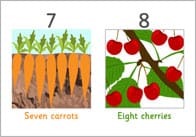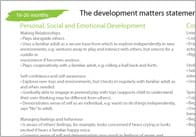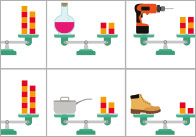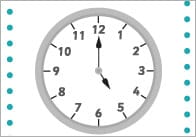Rhyming poetry – a literacy and performance tool
Development of phonological awareness
Rhyming and rhythmic poetry, phonological awareness and literacy are ingredients which blend together in a unique way. Teachers will be aware that the educational neuroscientists are pushing for this type of poetry to take centre-stage in every literacy lesson. It helps children break words down into sounds, in the way that the poet has already done in order to create rhythm in her writing. Dr Usha Goswami and other neuroscientists at Cambridge University are promoting the benefits of rhyming poetry for the development of phonological awareness, a key literacy skill. In fact, well before this research, my own generation was quite aware of it as we were brought up on the poetry of Lewis Carroll, Robert Louis Stevenson, Walter de la Mare and other poets who wrote in this way. We just took to reading like ducks to water, despite the fact that we had very few books during the war years.
Rhyming and rhythmic poetry seems to have moved aside for many years when free verse poetry became popular, but it seems that now teachers are being encouraged to use it again both for literacy and performance in their classrooms. It has never quite lost its popularity with children, of course.
Poetry – a great performance tool
Ask anyone of my generation to recite a poem, and they will probably be able to remember a poem from their childhood. We didn’t just read poetry but we learnt it off by heart and enjoyed doing so. We were encouraged to recite our favourite poems to others, especially at family get-togethers. It was fun. They were so much easier to remember when rhyming words helped you to learn them.
Poetry can sit happily in the centre of performance because it links so well to other arts subjects: music, dance, drama, art, craft, puppetry, animation, film and photography. These other ingredients are what can make a poetry performance sparkle in a classroom or on a stage.
Many poems are short and quite suitable for small children to learn and recite, learning how to put expression into them and how to project their voices without shouting. They quickly learn to dramatise their poetry. Many of the poems which I have written have speaking parts and are ideal for little dramatic poetry performances. Some have strong beats which mean that children can move or dance to the rhythms, or just click their fingers for fun.
Website
It was at the request of local children that I made my website three years ago: Josie’s poems. Today, on average in term time, 1000 teachers access it every day from every country of the world, and from entries in the guestbook teachers and children are enjoying my poems in their classrooms. I hope you will enjoy visiting and using the poems which I have written for you all and made freely available on my website. In the meantime here’s a little sample of my work…
CLICKETY CLACK
A train leaves the station, clickety clack,
With wheels that chatter along the track.
Its billowing smoke discolours the sky
And hedges tremble as it clatters by.
Over the points with a clickety clack.
A mighty monster, strong and black.
The fireman bends to shovel the coal
As with clickety clack the coaches roll.
It’s gathering speed now, clickety clack,
The horses run and the ducklings quack.
The cows in the fields gawk with surprise,
Amazed at this beast of incredible size.
Past houses, villages, fields and trees,
Its powerful body travels with ease.
It transports its passengers, clickety clack;
Then rumbles and grumbles all the way back.
Josie Whitehead, Cert Ed
(Retired Teacher and Poet)
Comments
Leave a Reply
Popular Teaching Resources
Stay Up To Date
Sign up for our newsletter and we’ll let you know when we create new early years resources.






I have a brand new website now: josiespoems.com I now have 1,450 poems, with illustrations and voice recordings here, which I hope you’ll all enjoy.
In fact, I have over 1,500 poems now with voice recordings. I do make skype visits to classrooms still and visit children and young people worldwide.